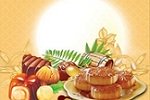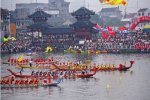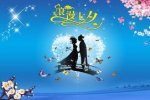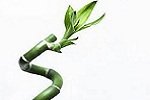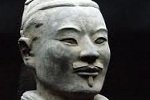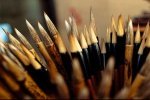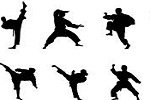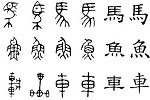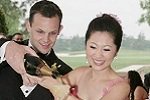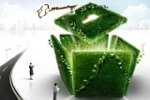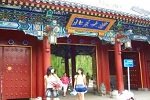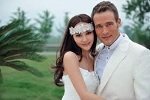Home ![]() Chinese Culture
Chinese Culture ![]() Chinese Holidays
Chinese Holidays ![]() Spring Festival
Spring Festival
Chinese Spring Festival
 The Chinese Spring Festival is also called the Chinese New Year celebration. It holds the most significant position among all Chinese festivals and holidays.
The Chinese Spring Festival is also called the Chinese New Year celebration. It holds the most significant position among all Chinese festivals and holidays.
To better understand its importance, think about Christmas in the Western world.
The Chinese New Year celebration lasts from January 1st to January 15th on the Chinese Lunar calendar, which is based on the phases of the moon. If you use a Gregorian calendar or solar calendar, you'll find that the Chinese New Year never falls on the same day each year. It's typically between late January and late February.
While people in the old days took days off from alring in the fields, nowadays workers in China normally have 3 days off. They might have more days if they accumulate other holidays for the occasion, which is a normal practice.
The Chinese Spring Festival celebrates the beginning of a new year, and is the time to have big family gatherings. Family members visit each other on different days while New Year's Eve is the day that every family member gets together in the house where the most revered person is dwelling, normally a grandparent or parent.
During the days of visiting, gift giving and meal sharing and displaying of festive decorations are supposed activities. All focus on bringing good luck for the new year and celebrating the coming of Spring. If you are interested, here are some very common Chinese New Year symbols. The following are traditional activities.
But before you dive into these activites, we'd like to introduce you the Hebrew words for The New Year. Why? Because a Chinese bamboo tale has been beautifully told on this day. You'll be inspired. The words are Rosh Hashanah, for people who don't know this already. Watch the video An Uplifting Rosh Hashanah Tale - Chinese Bamboo Trees here.
Now, for the traditional activities of the Chinese Spring Festival:
Cleaning the House
To better welcome the coming of the New Year, Chinese families clean every corner of their homes. It's usually done so thoroughly that even the top of the door will be dusted, and every linen is washed and dried prior to the first day of the New Year.
It is customarily believed that this thorough cleaning is to clear out any back luck from the previous year so that the house is ready for good luck of the coming new year. And on the first day of the New Year, nothing should be thrown out because the good luck might be taken out accidentally.
Wearing New Clothes
During the Chinese Spring Festival, people like to wear new clothes, especially children. They are not just given red envelopes; they are also given new clothes to wear.
Red color is encouraged while black is forbidden, because black is associated with death and red is associated with warding off bad spirits. Chinese New Year is the time to have an auspicious beginning of a new year, so color matters.
Playing Fireworks
To many, fireworks are the most fun part of the Spring Festival. The sound of fire crackers is heard during the whole cause of the Chinese New Year celebration and is loudest on New Year's eve when the old year is gone and the New Year is dawning. The whole country bursts with the thundering, joyful noise of fire crackers as every family participates.
Decorating the House
Like Christmas decoration to the western, one of the Chinese Spring Festival's traditions is to hang up Fu signs and spring couplets on doors, doorframes, walls and windows.
People also buy flowers with symbolic meanings for their home. The common flowers are plum blossoms and water narcissus. They are not chosen by accident. Click the links to see details.
Having Big Meals With Family
The Chinese Spring Festival is a time to make family reunions and have meals together. And they're not just regular meals, they're festival meals, meaning big meals.
The biggest meal is on the eve of the Chinese New Year. Traditional dishes are prepared and served. The meal normally is eight or nine dishes for a small family, because the two numbers are auspicious numbers, meaning prosperous and long-lasting respectively.
If you have a big family, just double or triple these numbers.
There are many Chinese New Year dishes with various styles. Some of the common food are Chinese dumplings, sticky rice cakes and tangerines. No matter what kind of dishes you have, they all have symbolic meanings.
Giving Good Luck Gifts
During the Chinese Spring Festival, gift-giving is a traditional practice. Normally the gifts should have symbolic meanings or carry good wishes like health, prosperity and happiness.
Hong bao, Lai-see or "red envelopes" are given to children by adults
Making Lanterns and Having Dragon Parades
The end of the Chinese New Year's festivities falls on the fifteenth day of the new year, which is celebrated by the Lantern Festival in some areas, and dragon parades in others.
Families will light lanterns, which symbolize the brightness of spring. Lanterns are hung on walls around the house, or on poles to be carried in lantern parades.
Many areas have dragon parade. Dragon parades are spectacular. Chinese martial skills are used, and acrobatic talents are displayed. Some parade groups may dance in front of your house to give you good new year's wishes, and families usually come out to thank them with red envelopes.
Honor the Zodiac Year Animal
There are some craft activities during the Chinese Spring Festival, and one of which is to make paper cuts of the animal of the year as holiday decorations.
According to the Chinese calendar, there are 12 zodiac animals associated with each of the 12 Chinese years that repeat once every 12 years. People who are born in a certain year share the personality traits of that animal. Here is detailed information.
New Year's Eve
This is the time to have a big family reunion meal which is supposed to last until after midnight. This is also a day that staying-up, even all night is legitimate to children, called Shou Sui.
Lighting firecrackers is also a very important activity for this night. It is believed that the fireworks scare the bad luck away and celebrate the coming of good fortune. The louder and longer the firecrackers display, the better and luckier the year will be.
New Year's Day
New Year's day is a day to relax and have fun. Many people sleep because they stayed up from last year to this year. The kitchen is not busy at all, not just because there are lots of leftovers from the big-New-Year's-eve meal, but also because it's a tradition.
According to Chinese legend, it is bad luck to use knives or scissors on New Year's Day as it may "cut off" your good fortune for the year.
Back to Top of Chinese Spring Festival
Some people call it Pure and Bright Festival. Here are more details about this sad yet beautiful occasion.
A very auspicious day that is also called Height Ascending Day or Chongyang Festival.
The Chinese Mid-Autumn Festival falls on the 15th day of August every year according to Chinese Lunar calendar. To the Chinese people, its importance is second only to the Spring Festival.
It occurs on the fifth day of the fifth lunar month, fun, exciting and full of meanings.
It's the Chinese Valentine's Day. The Double Seven (or Qi Qiao Jie) Festival is one of the most romantic traditional festivals in China. Its most popular Chinese name is Qi Xi, which literally means "The Night of Sevens."
Home ![]() Chinese Culture
Chinese Culture ![]() Chinese Holidays
Chinese Holidays ![]() Chinese Spring Festival
Chinese Spring Festival

New York Pass With More than 50 Sttractions

Southern California CityPASS saves you 32% for Disneyland, Universal Studios and 3 other attractions
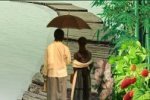
 Double Nine
Double Nine